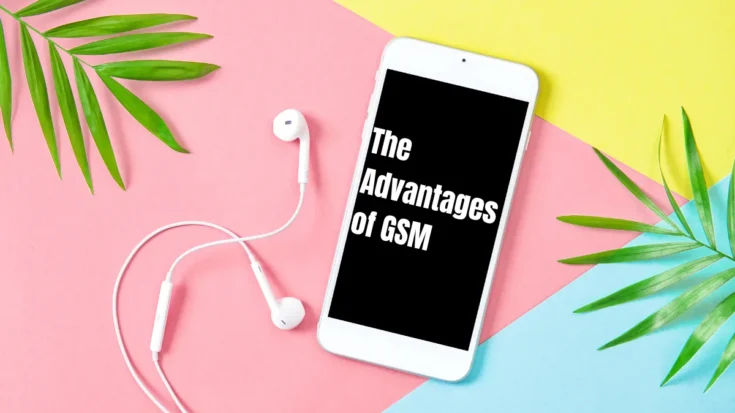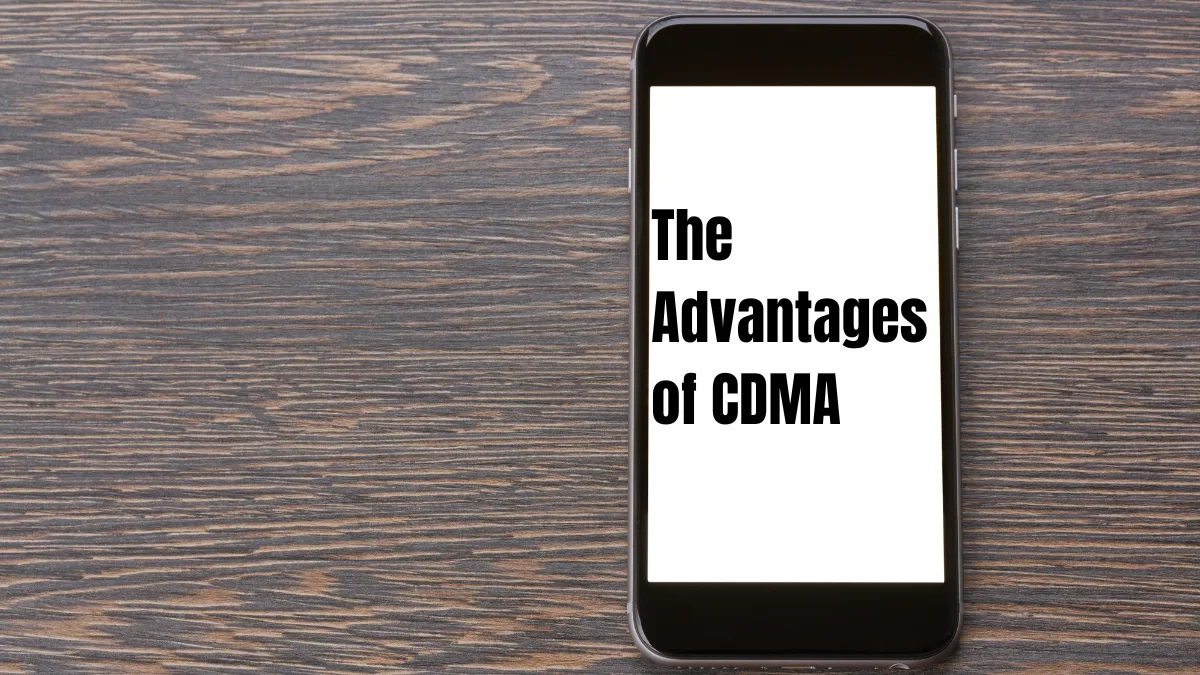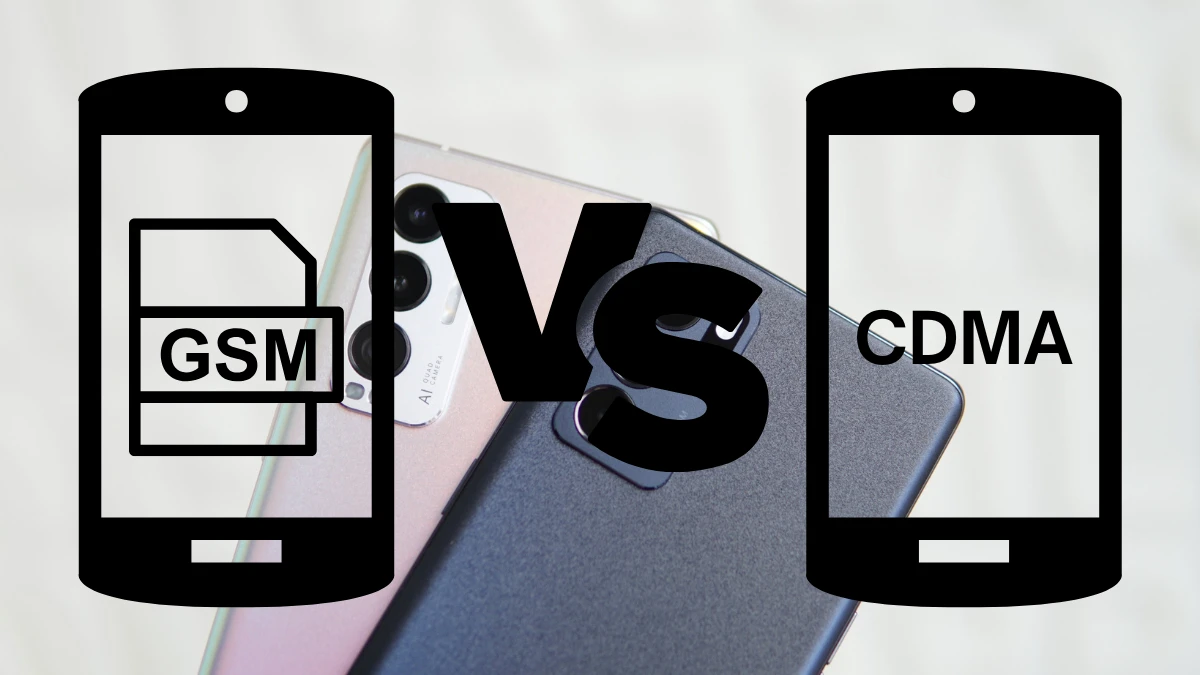So far, we know GSM and CDMA are two mobile internet networks. Of course, both networks have the difference between GSM and CDMA.
Both utilize microwaves and signal transmission so that the information sent will reach the destination. The difference between GSM and CDMA is quite significant.
We can see the difference between GSM and CDMA from the technology used, security, to flexibility.
This article will explain the difference between GSM and CDMA to its advantages so that you can consider its use.
Difference Between GSM and CDMA
GSM as the latest technology certainly has differences as a development from CDMA as the previous technology. Here are the differences between GSM and CDMA:
| Parameter | GSM | CDMA |
| Full-Form | GSM stands for Global System for Mobile communication. | CDMA stands for Code Division Multiple Access. |
| Basic | It is SIM-specific. | It is handset-specific. |
| Availability | GSM is highly available and globally used. Over 80% of the whole world’s mobile networks utilize it. | CDMA is not exceptionally common, and it is accessible in comparatively less carriers and nations. These gadgets are select to Canada, Japan, and the United States. |
| Technology Used | It uses the Time division multiple access (TDMA) and Frequency division multiple access (FDMA). | It uses the Code division multiple access (CDMA). |
| Voice and Data | GSM supports the transmission of both voice and data at once. | The CDMA technology does not support any such feature. It cannot transmit voice and data simultaneously. |
| Rate of Data Speed | It is slower. GSM offers 42 Mbps (Megabytes per second) in 3G (HSPA). | It is speedier. CDMA offers 3.6 Mbps (Megabytes per second) in CDMA. |
| Maximum Downloading Speed | GSM offers a maximum speed of 384 Kbps (Kilobytes per second). | CDMA offers a maximum speed of 2 Mbps (Megabytes per second). |
| Storing of Customer Information | GSM stores it in the SIM card. | CDMA stores it in a phone or headset. |
| Roaming | GSM offers worldwide roaming. | CDMA offers limited roaming. |
| Network | In every cell, the network tower serves as a mobile phone in that particular area. | It has a physical channel along with committed codes for each gadget display in the network. |
| Spectrum | The GSM technology follows a wedge spectrum (carrier). | The CDMA technology follows a spread spectrum technology. |
| Data Transfer Technology | The GSM technology makes use of EDGE. | The CDMA technology uses the EVDO ready data transfer technology. Thus, the data transfer here is also very fast. |
| Division | The carrier is divided into time slots. Each user gets a different time slot. Therefore, no one else can access the same calling slot until the ongoing call ends. | CDMA allows transmission of each user all the time over the entire frequency spectrum. |
| Signal Detection | One can detect the GSM signals because they stay concentrated in a narrow bandwidth. | One cannot easily detect signals in CDMA. |
| Built-in Encryption | GSM does not come with built-in encryption. | CDMA comes with built-in encryption. |
| Security | The GSM technology offers less security as compared to the CDMA technology. | The CDMA technology offers more security as compared to the GSM technology. |
| SIM Card | For the working of a GSM device, one would always require a SIM card. | The CDMA phones don’t have any such requirements. |
| Flexibility | The GSM technology is more flexible compared to CDMA. One can interchangeably use and replace a SIM on multiple devices. | The CDMA technology is not so flexible. |
| Radiation | On average, the GSM phones emit approx 28 times more radiation than the CDMA ones. | The CDMA devices emit very low radiation. |
| Wave Pulse | A GSM phone emits a more continuous wave pulse. So, you don’t need to reduce its exposure to electromagnetic fields. | The CDMA devices have no such pulses. |
The Advantages of GSM

The difference between GSM and CDMA, GSM has several advantages that make it a popular choice for mobile network users. Some of its main advantages are:
1. Technology evolution
GSM networks are constantly evolving with new technologies such as 4G and 5G. This allows users to enjoy advanced features such as higher data rates, better voice quality, and the ability to run more complex applications.
2. High data rates
With the development of 4G and 5G network technologies, GSM has high data rates. This allows users to access the internet quickly and smoothly.
3. Global coverage
GSM networks have extensive global coverage. This allows GSM users to make calls and access mobile data in many countries around the world without the need to change SIM cards.
4. Compatibility with various devices
GSM supports a variety of mobile devices, including smartphones, tablets, and modems. This gives users the flexibility of choosing a device that suits their needs.
The Advantages CDMA

The difference between GSM and CDMA, CDMA networks also have several advantages that need to be considered, namely:
1. Efficient use of the frequency spectrum
CDMA has higher efficiency in frequency spectrum usage. The spread spectrum technology used allows the use of the same spectrum for more users simultaneously, thus increasing network capacity.
2. High communication security
By using complex code separation technology, CDMA provides a higher level of security. This makes user communications better protected from spying attempts and hacker attacks.
3. Better voice quality
CDMA utilizes code separation technology that allows for clearer and higher-quality voice transmission. This allows users to enjoy a better communication experience.
4. Supports CDMA2000
CDMA network is that it supports the use of CDMA2000 technology. By using CDMA2000, users can enjoy higher data rates, faster internet access, and better voice quality.
That’s the difference between GSM and CDMA to the advantages that you can compare. In the end, GSM and CDMA have their advantages. So right now, you know what is the best to use. [UN]

